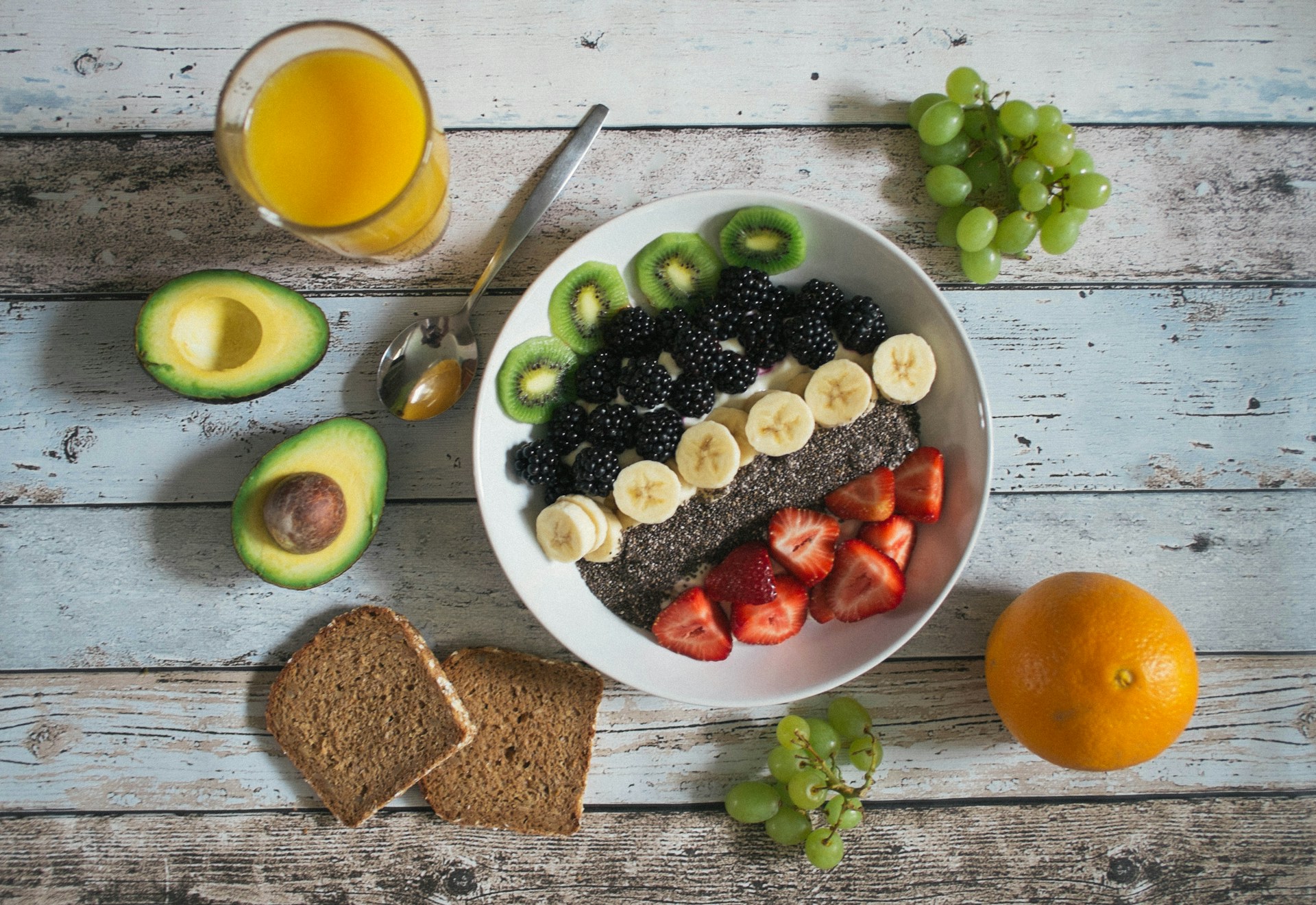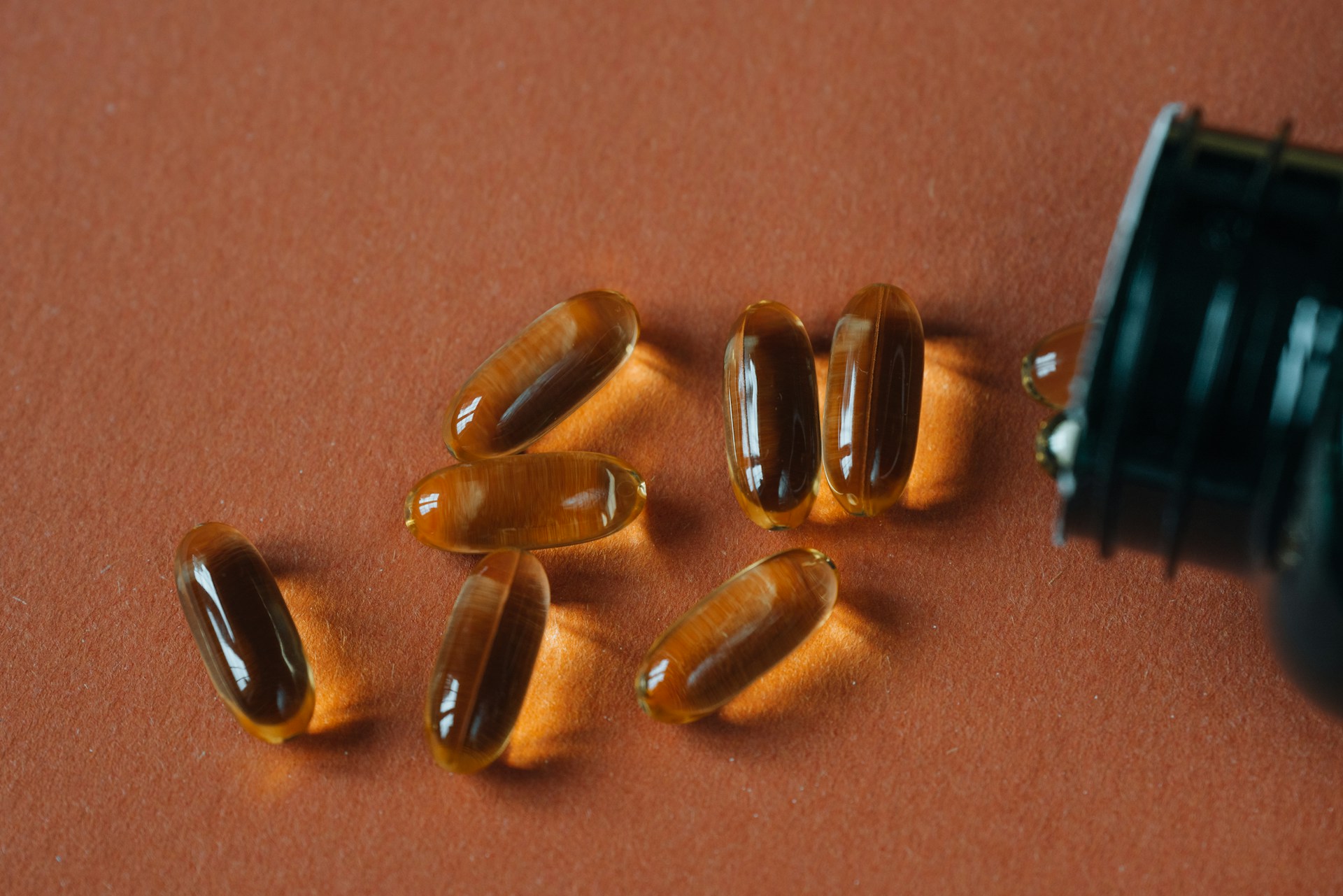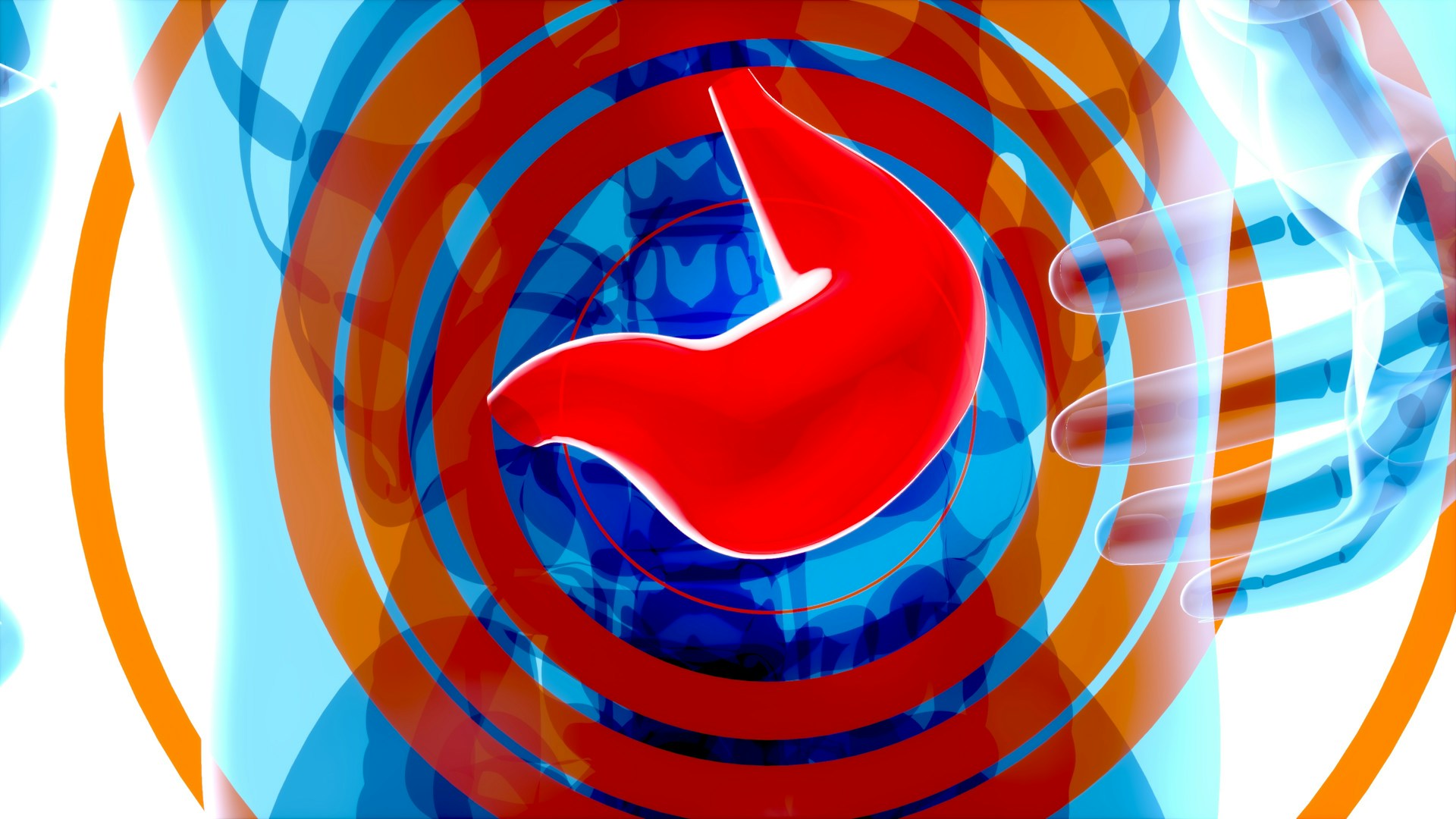Nutrition
Farewell Crash Diets: Embrace High-Fiber Foods for Lasting Weight Loss

It’s time to wave farewell to weight loss tactics that depend on severe calorie restriction. These crash diets often lead to weight gain, organ damage, malnutrition, loss of lean muscle mass, gallstones, eating disorders, and more. Instead of focusing on what you can’t eat and sticking to diets that leave you constantly hungry, you can concentrate on the nutritious foods that keep you satisfied, making healthier choices throughout the day. High-fiber foods can be particularly helpful in promoting a feeling of fullness.
Fiber can help curb cravings by keeping you full for longer, slow down gastric emptying, reduce your overall appetite, and prolong the time spent digesting your food. But the benefits of fiber extend beyond these.
Lauren Twigge, RD, the registered dietitian behind Lauren Twigge Nutrition, asserts that “besides helping to manage your weight, there are several other health reasons to eat a fiber-rich diet.” These include promoting heart health, supporting digestive regularity, decreasing the risk of certain chronic illnesses including colon cancer, lowering blood cholesterol, and helping manage blood sugar levels.
Carbohydrates are not the enemy when it comes to weight loss. In fact, consuming healthy whole grains can help keep you full, reducing the likelihood of impulsive eating. Benedict Ang, a fitness, nutrition, and mindset coach for Total Shape, recommends whole grains like oats, brown rice, and quinoa. “They’re packed with fiber and offer a wide range of nutrients, making them a staple in a high-fiber diet.”
Seeds, rich in healthy fats, protein, fiber, vitamins, and minerals, are often overlooked in the American diet. “Seeds are fantastic toppings for bowls of cereal, salads, or as grab-and-go snacks,” says Twigge. Pumpkin seeds, sunflower seeds, and especially flax seeds are great options for adding fiber to your diet.
Chia seeds are another excellent choice for adding fiber, healthy fats, and protein to your diet. Twigge suggests that adding just one ounce of chia seeds to your daily diet would add 9 grams of fiber and 4.5 grams of protein.
Twigge also recommends incorporating more berries into your diet. “Of all the fruits, berries are some of the most fiber-filled!” she tells Best Life. However, not all berries are equal in fiber content. While a cup of blueberries or strawberries has between 3.3 and 3.5 grams of fiber, raspberries and blackberries have between 7.5 and 8 grams of fiber.
Other fiber-rich fruits such as pears, apples, and mangoes are also recommended by experts. “While berries are a go-to fiber source, diced pears are also fiber-filled fruit choices that you could include. One cup of diced pear has around 5 grams of fiber,” says Twigge.
Many dried fruits are also high in fiber content and can aid in weight loss. Twigge suggests eating raisins, prunes, dried apricots, and cranberries, but cautions to find options without added sugar, which can add excessive calories to even small portions.
Fresh vegetables like artichoke hearts, collard greens, broccoli, Brussels sprouts, and spinach are high in fiber and can help manage your weight while enhancing your nutrition. “These veggies are low in calories but high in fiber, making them a perfect addition to your meals,” adds Ang.
Nuts are rich in protein, omega-3 fatty acids, antioxidants, and fiber. Studies have found that eating just a handful of nuts can reduce cravings, improve satiety, and lower your overall risk of obesity. Walnuts and macadamia nuts are particularly high in fiber.
Lastly, beans and legumes are excellent weight loss foods that keep you full long after your last bite. “Legumes, such as lentils and chickpeas, are excellent sources of fiber,” says Ang. “They’re not only rich in fiber but also a great source of plant-based protein, which can be incredibly beneficial for weight management.” Whether you opt for black beans, garbanzo beans, kidney beans, or pinto beans, all have high fiber levels ranging from 9 to 35 grams per cup.
Let us know what you think, please share your thoughts in the comments below.

Nutrition
Urgent Alert: Major Recall on Popular Herbal Supplements Due to Undisclosed Drug Risks

People across the United States often take supplements to boost their health, but it’s crucial to remember that the U.S. Food and Drug Administration (FDA) does not give pre-market approval for dietary supplements. Consequently, if safety issues surface, they typically arise after consumers have already had the chance to purchase and use the products. Currently, this situation is unfolding as two separate supplements are being recalled due to undisclosed drug ingredients.
The FDA recently disclosed a company announcement regarding the first of these supplement recalls. The announcement, made on July 15, concerns a voluntary recall by SoloVital.com, a California-based company, of all batches of its Umary Acido Hialuronica (Hyaluronic Acid) supplements. This product, promoted and sold for pain relief, is distributed nationwide via the company’s online store.
“The recall was ordered after an FDA laboratory analysis confirmed that the Umary supplements were tainted with two hidden drug ingredients: diclofenac and omeprazole,” according to the recall notice.
“Products containing diclofenac and omeprazole cannot be marketed as dietary supplements.”
Diclofenac is a non-steroidal anti-inflammatory drug (NSAID). It can “cause increased risk of cardiovascular events, such as heart attack and stroke, as well as serious gastrointestinal damage, including bleeding, ulceration, and fatal perforation of the stomach and intestines,” warns the FDA. There may also be harmful interactions with other medications, particularly if consumers use multiple products containing NSAIDs.
On the other hand, omeprazole is a proton pump inhibitor (PPI) typically used to treat stomach acid-related disorders. However, it “may cause serious skin reactions, abdominal pain, diarrhea, nausea, and headache,” according to the FDA. This surreptitious ingredient can potentially camouflage stomach problems and may negatively interact with other medications.
SoloVital is currently contacting its customers via email to arrange product returns. In the meantime, consumers who have the affected Umary supplements are being strongly advised to cease usage and return them to their original place of purchase.
Yet, there’s a second supplement of concern that might be in your household. Following closely on the heels of the Umary recall, the FDA released another company announcement about another supplement recall on July 16. This one concerns the voluntary recall of some Infla-650 Herbal Dietary Supplement Capsules by Guru Inc., a Georgia-based company.
These Infla-650 Herbal supplements were also found to contain hidden diclofenac. In addition, they also included undisclosed acetaminophen and phenylbutazone. This poses a significant risk to consumers due to the danger of unintentional acetaminophen overdose, especially if consumers are also taking other products containing acetaminophen.
“Acetaminophen overdose can cause liver damage (hepatoxicity), ranging in severity from abnormalities in liver function to acute liver failure, and even death,” according to the recall notice. Furthermore, the presence of phenylbutazone, an NSAID previously discontinued for human use in the U.S., is concerning due to its risk of causing potentially fatal injuries, specifically bone marrow toxicity.
The recalled Infla-650 supplements, marketed as an herbal dietary supplement for pain relief, were distributed nationwide and sold online. Like SoloVital, Guru Inc. has initiated communication with its distributors and customers for product return. Consumers are urged to stop use and return any recalled Infla-650 supplements to their place of purchase.
Let us know what you think, please share your thoughts in the comments below.
Nutrition
Gastroenterologist’s Top 5 Foods for a Happier, Healthier Gut

The health of our gut is pivotal, playing a significant role in our overall wellbeing by processing food, absorbing necessary nutrients, and expelling toxins. As noted by internal medicine physician William W. Li, MD, “The more diverse your microbiome, the healthier your gut. This translates into lower inflammation and a reduced risk for chronic diseases like heart disease and type 2 diabetes. It can also promote faster healing, a more streamlined metabolism and even better mood.” So, what foods nurture the gut and boost its health? Here are five gut-friendly foods that gastroenterologist Joseph Salhab, DO, incorporates into his daily diet.
Sourdough Bread
Dr. Salhab, an avid baker, champions sourdough bread as a gut-friendly food. “For my gut-friendly breads, I love sourdough,” says Salhab. He explains that sourdough is “lower in gluten and other bloat-causing agents than other breads,” making it a healthier choice for your gut. The fermentation process of sourdough also leads to an increase in prebiotic and probiotic properties, which benefit the gut’s health, per a 2021 report in the journal, Microorganisms.
Kefir Cheese
After toasting a slice of his homemade sourdough bread, Salhab enjoys it with a thin spread of kefir cheese. This cheese is “naturally rich in probiotics,” which are great for gut health. Kefir, a fermented milk-like beverage, boasts several health benefits, including “anti-inflammatory, anti-oxidative, anti-cancer, anti-microbial, anti-diabetic, anti-hypertensive, and anti-hypercholesterolemic effects,” according to a study in the Foods journal.
Greek Yogurt
When he’s not enjoying his sourdough toast, Dr. Salhab starts his day with Greek yogurt as it is a food naturally high in probiotics. He garnishes it with blueberries and raspberries, which he says, “help my gut bacteria thrive and they help with memory and focus.”
Avocados
Dr. Salhab cherishes avocados, a food high in fiber and packed with essential nutrients. As per Johns Hopkins Medicine, avocados promote healthy digestive function due to their potassium content. Plus, avocados are a low-fructose food, which helps to reduce bloating.
Sliced Tomatoes
With his sourdough toast and smashed avocado, Salhab adds slices of tomatoes, a “great prebiotic.” As outlined by Best Life, prebiotics serve as food for the gut’s microflora, differing from probiotics as they remain in the gut. Tomatoes can also lower your risk of heart disease, cancer, and boost immunity, as per Cleveland Clinic.
After discussing these gut-friendly foods, it’s clear that maintaining a healthy gut contributes to our overall health and wellbeing. By incorporating nutritious and diverse foods like sourdough bread, kefir cheese, Greek yogurt, avocados, and tomatoes into your diet, you can support a healthier, more diverse microbiome. As Dr. Salhab demonstrates, these foods can be delicious and provide a variety of other benefits, ranging from improved memory to reduced risk of chronic diseases. So, why not consider including them in your meal plan to help your gut strive?
Let us know what you think, please share your thoughts in the comments below.
Nutrition
Unlock the Secret Perks of Echinacea From Immune Support to Skin Care

Introducing the multifaceted supplement that’s been revered for centuries for its potential health benefits: Echinacea. Once employed as a versatile medicinal herb to fight off diseases like scarlet fever and diphtheria, echinacea is now classified as a dietary supplement meant to enhance your overall well-being, not cure ailments. Many tout echinacea as a formidable immune booster, but the benefits don’t stop there. So, let’s delve into six surprising health benefits that echinacea supplements can provide.
Potential Anti-Inflammatory Properties
“Echinacea’s potential to reduce inflammation in the body is intriguing. It could help with minor skin irritation or sore throats by calming the body’s inflammatory response,” shares Raj Dasgupta, MD, a medical reviewer for NCOA. While research is underway to confirm the extent of these benefits, the initial anecdotal evidence is promising.
Speeding Up Wound Recovery
Echinacea isn’t just potentially beneficial internally, but externally as well. A 2023 study in the Molecules journal revealed echinacea’s antimicrobial and aseptic effects, which can aid in faster wound healing by warding off infections.
“It works by stimulating the immune system to send healing cells to the injured area,” explains Dasgupta. Nonetheless, he emphasizes that further research is needed and that echinacea should not substitute proper medical treatment for wounds.
Dermatological Effects
Your skin might love echinacea, too! A 2010 study identified echinacea purpurea as beneficial for protecting skin from oxidative stress and improving its hydration.
“Studies suggest it may be helpful for chronic conditions like eczema,” Dasgupta adds. Still, a call for more research to confirm this has been echoed.
Immune System Booster
Perhaps the most well-known potential benefit of echinacea is an immune system boost. Despite traditional use, Dasgupta urges caution, saying, “While traditionally used for colds, the evidence for its effectiveness is mixed. Some studies show a slight reduction in cold duration.”
Anxiety Alleviation
Could echinacea play a role in managing anxiety? A 2021 study found anti-anxiety and anti-depressant effects in subjects who took echinacea supplements for six weeks. Chris Mohr, PhD, RD, a fitness and nutrition advisor, explains, “It has potential anti-inflammatory properties, and chronic inflammation is linked to anxiety.” He does stress that it shouldn’t be used as a first-line anxiety treatment, however.
Regulating Blood Sugar Levels
There’s preliminary research suggesting that echinacea might assist blood sugar regulation, although this data is based on animal studies and has not been replicated in humans yet.
“If data do emerge to support the animal studies, this could be beneficial for those with prediabetes or those who need to manage blood sugar as part of a larger health plan,” proposes Mohr.
Echoing what might be the golden rule of dietary supplementation, our health journey is as unique as we are. What works for one may not work for all. So always be sure to consult with a healthcare provider, especially if you have chronic diseases or autoimmune conditions, before incorporating echinacea or any new supplement into your diet. From potentially reducing inflammation to possibly boosting your immune system, the old yet new echinacea might just be the versatile dietary supplement your health routine needs.
Let us know what you think, please share your thoughts in the comments below.
-

 Health10 months ago
Health10 months agoPreventing Falls and Injuries for Seniors
-

 Nutrition6 months ago
Nutrition6 months agoThe Aging Secret of Vitamin D Unveiled
-

 Nutrition10 months ago
Nutrition10 months ago5 AMAZING Dinner Recipes That Are Also HEALTHY
-

 Health2 months ago
Health2 months ago17-Second Neuropathy Solution
-

 Health1 month ago
Health1 month agoOncologist Reveals Top 5 Cancer Prevention Tips You Shouldn’t Ignore
-

 Lifestyle2 months ago
Lifestyle2 months agoSleep Soundly with These 11 Expert-Approved Bedtime Routines
-

 Health7 months ago
Health7 months agoDownsizing Tips: Simplifying Your Lifestyle
-

 Health5 months ago
Health5 months agoBoost Your Heart Health: Simple Tips for Seniors